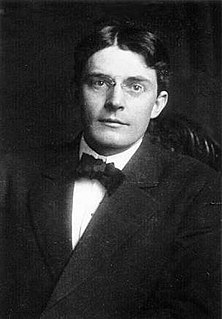A Quote by Robert A. Heinlein
If men were the automatons that behaviorists claim they are, the behaviorist psychologists could not have invented the amazing nonsense called 'behaviorist psychology.'
Quote Topics
Related Quotes
Psychology, as the behaviorist views it, is a purely objective, experimental branch of natural science which needs introspection as little as do the sciences of chemistry and physics.... The position is taken here that the behavior of man and the behavior of animals must be considered in the same plane.
Some have said that the thesis [of indeterminacy] is a consequence of my behaviorism. Some have said that it is a reductio ad absurdum of my behaviorism. I disagree with this second point, but I agree with the first. I hold further that the behaviorism approach is mandatory. In psychology one may or may not be a behaviorist, but in linguistics one has no choice.
I invented nothing new. I simply assembled the discoveries of other men behind whom were centuries of work. Had I worked fifty or ten or even five years before, I would have failed. So it is with every new thing. Progress happens when all the factors that make for it are ready, and then it is inevitable. To teach that a comparatively few men are responsible for the greatest forward steps of mankind is the worst sort of nonsense.
Think of all the nonsense you had to learn in psychology courses. None of which was testable. None of which was measurable. We had behaviorism, Freudian psychology, all of these theories that you learn in psychology. Totally untestable. Now, we can test it, because physics allows us to calculate energy flows in the brain.
There are moments, psychologists tell us, when the passion for sin, or what the world calls sin, so dominates a nature, that every fibre of the body, as every cell of the brain, seems to be instinct with fearful impulses. Men and women at such moments lose the freedom of their will. They move to their terrible end as automatons move. Choice is taken from them, and conscience is either killed, or, if it lives at all, lives but to give rebellion its fascination, and disobedience its charm.
Many people have trouble sticking to their resolutions, and there is a simple scientific explanation for this. In 1987, a team of psychologists conducted a study in which they monitored the New Year's resolutions of 275 people. After one week the psychologists found that 92 percent of the people were keeping their resolutions; after two weeks we have no idea what happened because the psychologists had quit monitoring.



































